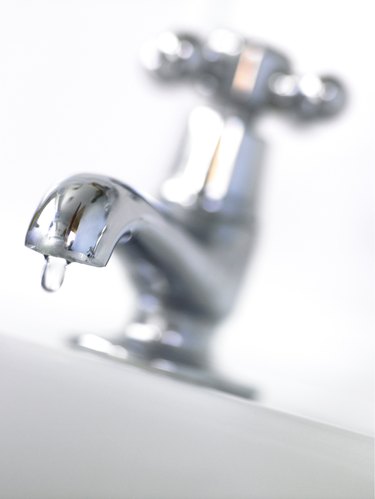The Instruction to Rectifying Low Water Pressure in Your Home
The Instruction to Rectifying Low Water Pressure in Your Home
Blog Article
Nearly everybody maintains their own rationale involving 10 Reasons for Low Water Pressure in Your House.

Low water stress in your home can be an aggravating problem, impacting every little thing from bathing to washing dishes. If you're experiencing weak water circulation, there are a number of feasible causes and services to check out. In this guide, we'll talk about usual factors for low water pressure and sensible steps to deal with the concern efficiently.
Intro to Low Water Pressure
Low water stress occurs when the flow of water from your taps, showers, and other components is weaker than usual. This can make day-to-day tasks extra tough and much less effective. Comprehending the causes of low water stress is crucial to finding the right remedy.
Common Causes of Low Water Pressure
Pipe Obstructions
In time, pipelines can end up being clogged with mineral deposits, debris, or particles, limiting the circulation of water. This is a typical concern in older homes with galvanized steel pipelines.
Corrosion
Corrosion within pipelines can cause leaks and lowered water stress. Rust build-up can tighten water flow, specifically in maturing plumbing systems.
Faulty Pressure Regulatory Authorities
Pressure regulators are accountable for keeping consistent water pressure in your home. If they malfunction, it can lead to low water stress or uneven flow throughout the house.
Metropolitan Water Issues
In some cases, the issue lies outside your home. Metropolitan supply of water problems, such as main line leaks or upkeep job, can briefly reduce water stress in your area.
Exactly How to Diagnose Low Tide Pressure
Examining Taps and Components
Begin by checking the water stress at different taps and components throughout your home. If the problem is separated to certain locations, it might suggest localized issues.
Evaluating Pipelines
Evaluate noticeable pipelines for signs of leakages, deterioration, or obstructions. Take notice of any kind of unusual audios, such as knocking or rattling pipes, which could suggest concerns within the plumbing system.
Consulting with a Plumber
If you're unable to pinpoint the cause of low tide pressure, think about employing a specialist plumber to perform an extensive examination. They can identify underlying problems and recommend ideal solutions.
Do It Yourself Solutions to Take Care Of Low Water Pressure
Cleaning Up Aerators and Showerheads
Natural resources can accumulate in aerators and showerheads, minimizing water flow. Get rid of and clean up these parts on a regular basis to improve water pressure.
Flushing Hot Water Heater
Debris build-up in the hot water heater can limit circulation and minimize effectiveness. Flushing the container regularly helps remove debris and keep optimal performance.
Inspecting Pressure Regulator
Make certain that the stress regulatory authority is functioning correctly. Changing or replacing the regulatory authority can assist restore correct water stress throughout your home.
Clearing Up Clogs in Water Lines
For small blockages, attempt making use of a plumbing snake or chemical drain cleaner to clear obstructions in pipes. Be cautious when making use of chemicals and comply with safety and security standards.
When to Call an Expert Plumber
If DIY efforts fail to fix the concern or if you presume considerable plumbing problems, it's finest to look for aid from a certified plumber. They have the experience and tools to deal with complex concerns securely and properly.
Safety Nets to Keep Water Pressure
Regular Upkeep
Arrange routine upkeep for your plumbing system to avoid problems such as rust, leakages, and blockages. Attending to minor issues early can help stay clear of more substantial repair services later on.
Installing a Stress Booster
Take into consideration installing a stress booster pump to boost water stress in locations with regularly low flow. This can be especially useful for multi-story homes or homes with high-demand components.
Monitoring Water Usage
Be mindful of water use routines and prevent overtaxing the plumbing system. Straightforward changes, such as shocking showers and laundry loads, can aid maintain ample water pressure.
Conclusion
Taking care of low water pressure can be discouraging, but recognizing the underlying causes and implementing ideal options can recover optimum circulation throughout your home. Whether it's cleansing aerators, evaluating pipes, or talking to a plumber, taking proactive actions can ensure a constant supply of water for your daily demands.
FOUR WAYS TO FIX LOW WATER PRESSURE NOW
Turning on a shower or faucet only to find the water comes out in a sad, slow drizzle is never a good feeling. How exactly are you supposed to wash a pan or take a quick shower when it takes 10 minutes just to rinse off a little soap? The good news is that when your water pressure is bad, there's always a cause: typically one that can be easily fixed. Here are some of the most common causes of low pressure and what you can do to fix the issue:
DEBRIS AND MINERAL DEPOSIT BUILDUPS
If you notice low water pressure from just one or two of the fixtures in your house, the problem likely has to do with debris buildup. Water is full of minerals and other debris, all of which can accumulate in your pipes and on your fixtures. This can cause a blockage that affects how much water flows through. To fix this, try filling a small plastic bag with white vinegar, and use a rubber band to hang it around your showerhead or faucet. Let the head of the fixture soak for a few hours, and the vinegar should loosen the deposits.
WATER LEAKS
Leaks are another common cause of low water pressure. If water is flowing out of your plumbing through a hole or crack before it can reach your fixture, the pressure coming out of the faucet or showerhead will be lower. A plumbing professional is your best bet for finding and repairing a leak in your water supply pipes.
Leaks are another common cause of low water pressure. If water is flowing out of your plumbing through a hole or crack before it can reach your fixture, the pressure coming out of the faucet or showerhead will be lower. A plumbing professional is your best bet for finding and repairing a leak in your water supply pipes.
FOUR WAYS TO FIX LOW WATER PRESSURE NOW
Turning on a shower or faucet only to find the water comes out in a sad, slow drizzle is never a good feeling. How exactly are you supposed to wash a pan or take a quick shower when it takes 10 minutes just to rinse off a little soap? The good news is that when your water pressure is bad, there's always a cause: typically one that can be easily fixed. Here are some of the most common causes of low pressure and what you can do to fix the issue:
DEBRIS AND MINERAL DEPOSIT BUILDUPS
If you notice low water pressure from just one or two of the fixtures in your house, the problem likely has to do with debris buildup. Water is full of minerals and other debris, all of which can accumulate in your pipes and on your fixtures. This can cause a blockage that affects how much water flows through. To fix this, try filling a small plastic bag with white vinegar, and use a rubber band to hang it around your showerhead or faucet. Let the head of the fixture soak for a few hours, and the vinegar should loosen the deposits.
WATER LEAKS
Leaks are another common cause of low water pressure. If water is flowing out of your plumbing through a hole or crack before it can reach your fixture, the pressure coming out of the faucet or showerhead will be lower. A plumbing professional is your best bet for finding and repairing a leak in your water supply pipes.
Leaks are another common cause of low water pressure. If water is flowing out of your plumbing through a hole or crack before it can reach your fixture, the pressure coming out of the faucet or showerhead will be lower. A plumbing professional is your best bet for finding and repairing a leak in your water supply pipes.
A VALVE ISSUE
If you have low water pressure throughout your home, check your main shut-off valve to make sure it's completely open. You may also want to see if there's a pressure-reducing valve installed. If there is, have a plumber help you adjust the settings to get the pressure you're looking for.
OTHERS USING WATER
Believe it or not, your low water pressure could be caused by your neighbors. If you notice low pressure at certain times of day, it may be because you and the people living next to you have similar schedules - when everyone is showering at the same time, the pressure will be lower in every home. Low pressure throughout the neighborhood may also be caused by an issue with your municipal water supply. If that's the case, call the supplier to see if they're working on the issue.
https://www.rotorooter.com/blog/water-leaking/low-water-pressure-fixes/

I was shown that editorial on 10 Reasons for Low Water Pressure in Your House through an acquaintance on our other web property. Sharing is good. One never knows, you may just be helping someone out. Kudos for being here. Come back soon.
Call Today Report this page